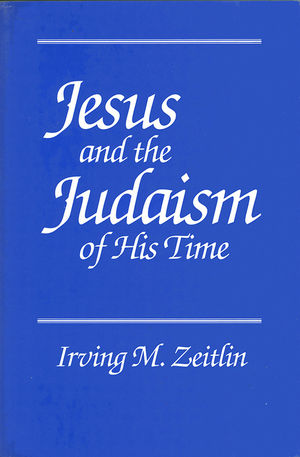Jesus and the Judaism of His TimeISBN: 978-0-7456-0784-9
Paperback
224 pages
January 1991, Polity
 This is a Print-on-Demand title. It will be printed specifically to fill your order. Please allow an additional 10-15 days delivery time. The book is not returnable.
|
||||||
'An important addition to the scholarship of the most critical
period in the formation of what has come to be called the
'Judeo-Christian heritage'. It will be of great interest to general
readers.' St Louis Jewish Light
'Zeitlin has digested a great deal of scholarly material and
imparts it with brevity and clarity.' Canadian Jewish
News
'A well-written project with many other admirable features'
Toronto Journal of Theology
'Admirable in its clarity, its clean, direct, unpretentious
style, and its careful arrangement.' Contemporary
Sociology
'Zeitlin offers Christians the opportunity to rise to the
challenge of understanding the gospels from a Jewish perspective,
historically based, while returning to the basics of the faith of
the church in their simplest expressions, i.e., the expressions of
the gospel accounts themselves. 'Didaskalia
‘How Jewish was Jesus? Did he consider himself the
Messiah? Why was he executed by the Romans as a political rebel?
What did Jesus really think about the Sabbath, dietary laws, and
the idea of divorce? How did Paul misinterpret Jesus’ major
concepts? How did the early church separate form Judaism? These are
some of the contentious and complex questions that Irving M.
Zeitlin, professor of Sociology at the University of Toronto,
examines in this concise and scholarly study. The author reviews
Jesus’ life and teaching in relation to his social milieu and
historical period. His method is sociological and proves to be a
fruitful approach to problems, questions and issues that have been
discussed by scholars over the centuries.’ Canadian Jewish
News
‘…a tour de force, an intellectual feat of great
distinction.’ Arnold Ages, University of
Waterloo
‘… an important addition to the scholarship of the most critical period in the formation of what has come to be called the “Judeo-Christian heritage”. It will be a great value to serious scholars and a great interest to general readers.’ St. Louis Jewish Light



